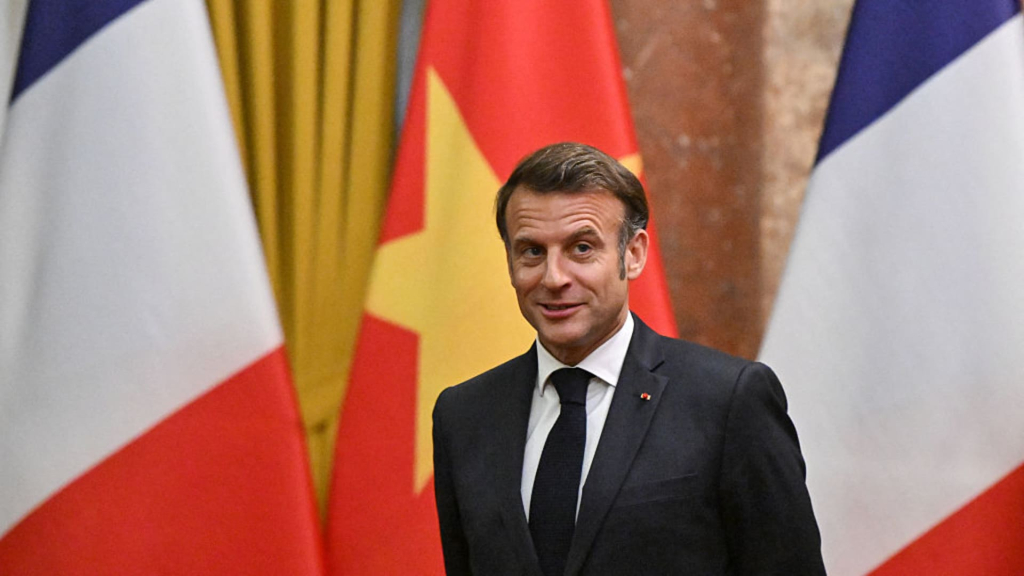SINGAPORE — French President Emmanuel Macron urged European and Asian nations to strengthen their alliances to avoid being ensnared by the escalating tensions between the United States and China. Speaking at the annual Shangri-La Dialogue defense forum in Singapore, he emphasized the need for Indo-Pacific leaders to forge a “new coalition” to navigate the implications of the intensifying U.S.-China rivalry.
“France stands as a friend and ally of the United States while also cooperating with China, even amidst our differences and competition,” Macron stated, highlighting that this engagement is guided by a commitment to national interests.
The French leader articulated that the ongoing division between these global superpowers poses a significant threat to the world.
Macron’s remarks were made during a regional tour that included visits to Vietnam and Indonesia. He has been actively working to enhance France’s defense partnerships amid concerns about becoming collateral damage in the U.S.-China trade disputes and broader geopolitical tensions with Beijing.
Earlier in Jakarta, Macron and Indonesian Defense Minister Prabowo Subianto finalized a preliminary defense agreement, which may lead to Indonesia acquiring more French military equipment, including Rafale fighter jets and Scorpene submarines. Additionally, France and Vietnam sealed agreements related to Airbus aircraft and various defense initiatives, totaling over $10 billion.
“ASEAN and Europe are affected by the unpredictability resulting from new tariff policies and the erosion of a rule-based trade order,” Macron cautioned, noting that such developments could have detrimental effects on their economies and the funding of defense initiatives.
His renewed focus on this region coincides with escalating tensions between the U.S. and China, despite a recent easing of tariff measures.
The Trump administration has threatened to impose stricter visa regulations for Chinese students and has restricted the export of certain chip design software to China, while Beijing has maintained tight control over its rare earth exports to the United States.
Highlighting Concerns Over China
Macron emphasized the shared interests of Asia and Europe in preserving the global order and strengthening defenses against “revisionist” nations that seek to assert control over strategic regions, including the edges of Europe and the South China Sea. His comments implied criticism of China’s activities in these contested waters.
“If we allow Russia to seize territory in Ukraine without response, how can we expect to react to potential threats in Taiwan? What will our response be if conflict arises in the Philippines?” he asked, referencing the ongoing tensions between China and the Philippines over disputed islands and reefs. Philippine missions continue to support a small military contingent stationed on an aging warship deliberately grounded in 1999 to assert territorial claims.
China claims the majority of the South China Sea, despite a 2016 ruling by the Permanent Court of Arbitration, which deemed its assertions as lacking legal basis. China has consistently rejected this ruling.
The issue of Taiwan also looms large, as China regards the island as its territory and has increased military activity around it, including the deployment of aircraft and naval vessels.
This year’s summit saw China’s Defense Minister Dong Jun absent, with Beijing sending a lower-level delegation from the National Defense University of the People’s Liberation Army. At last year’s dialogue, the Chinese defense chief warned that any forces attempting to separate Taiwan from China would face dire consequences and reaffirmed the issue as central to China’s national interests.


























